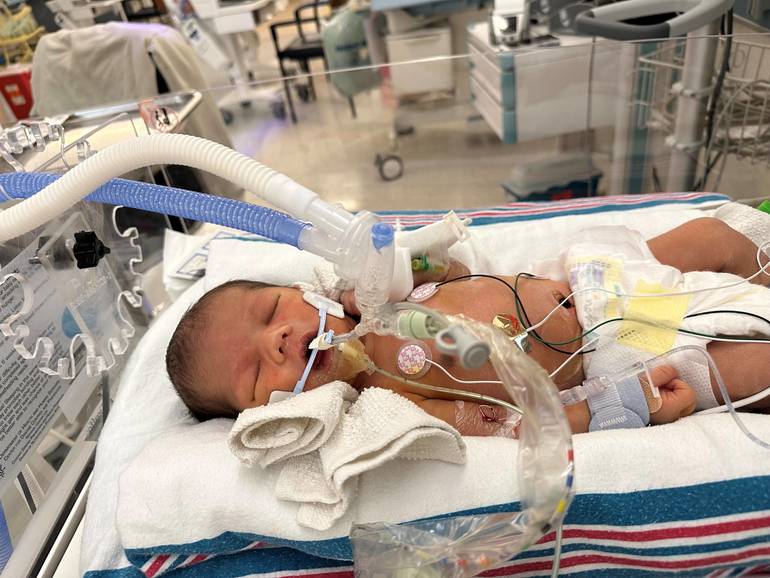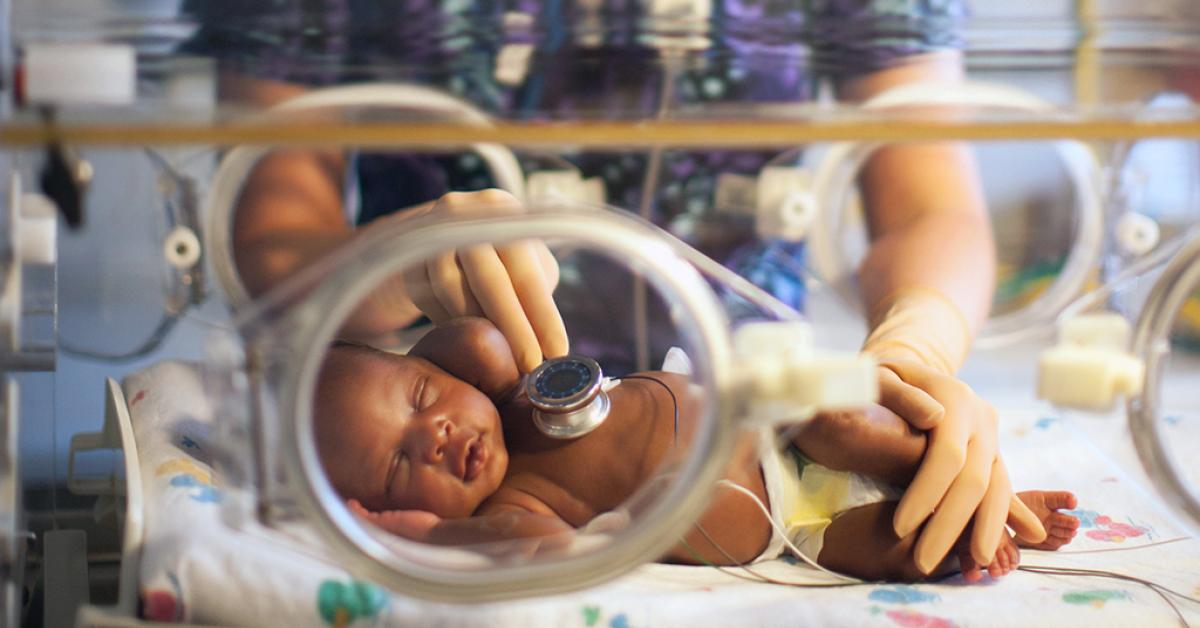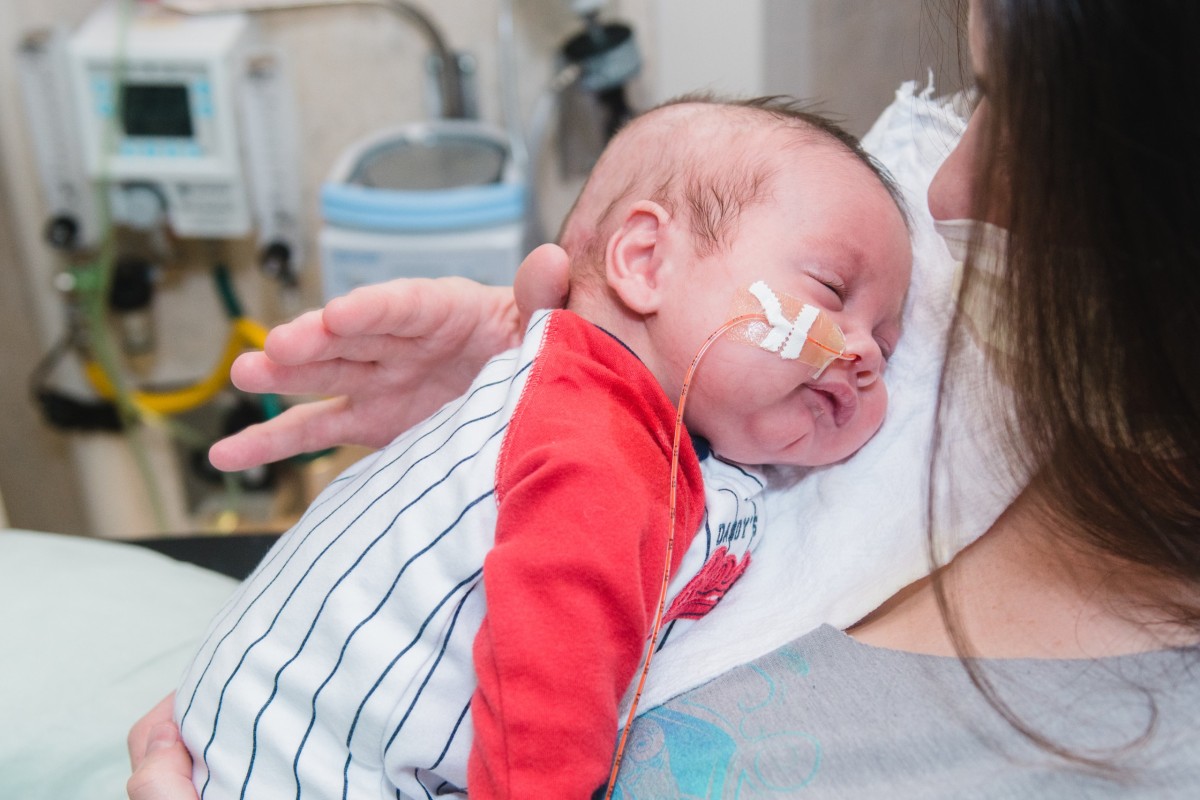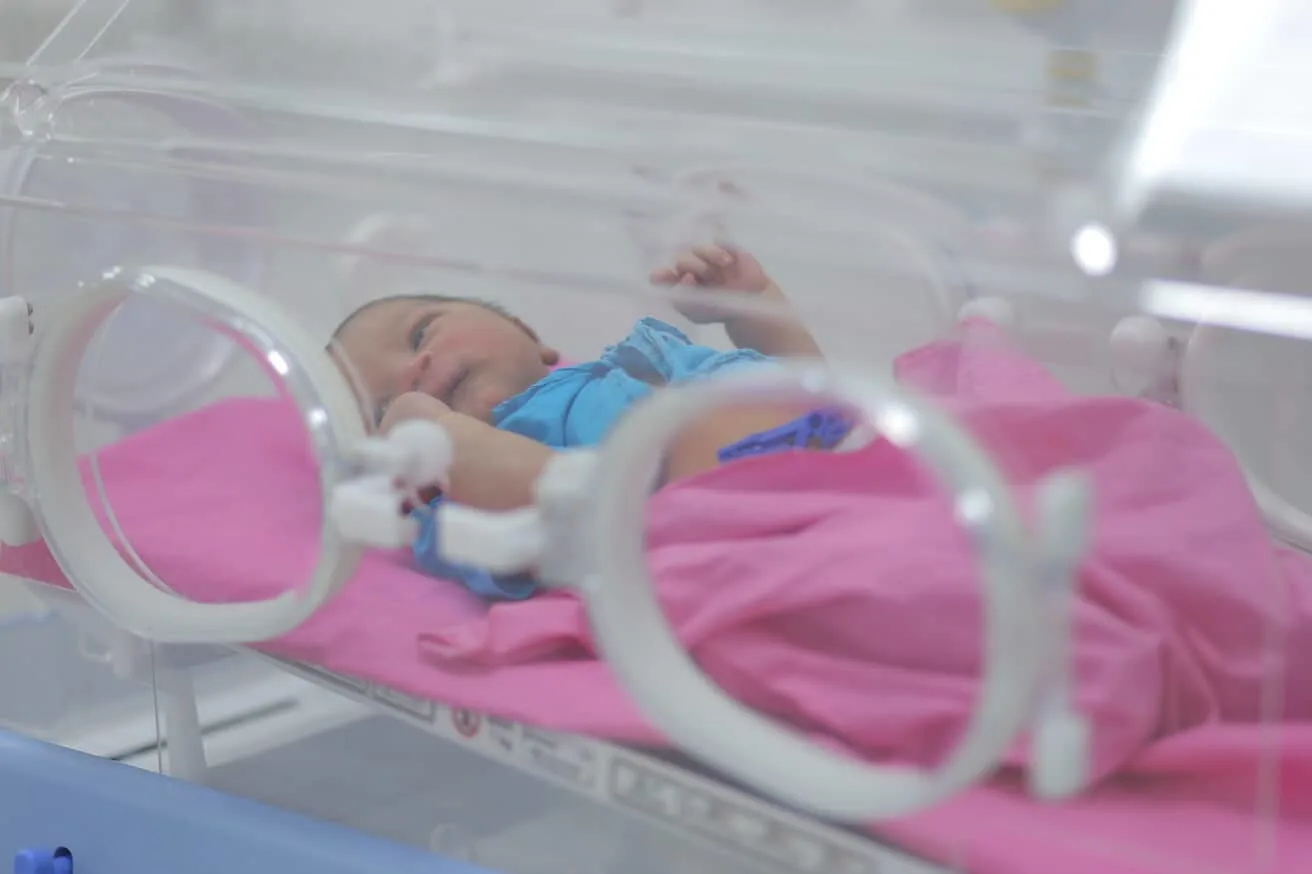Understanding the NICU: A Guide for New Parents
When it comes to the care of newborns, especially those who are born prematurely or with health complications, the Neonatal Intensive Care Unit (NICU) plays a critical role. At BR Healthcare, our NICU is designed to provide the highest level of medical care and support for newborns who need specialized attention right after birth.
What is a NICU?
A Neonatal Intensive Care Unit, commonly known as NICU, is a specialized unit in a hospital that is dedicated to the care of ill or premature newborn infants. These units are equipped with advanced medical technology and staffed by healthcare professionals who are specially trained in neonatology, the branch of medicine that deals with the care, development, and diseases of newborn infants.
Which babies need special care?
Babies admitted to the Neonatal Intensive Care Unit (NICU) typically require specialized medical attention for various reasons. Here are some categories of babies who often need special care:
1. Premature Babies
Premature babies, or preemies, are those born before 37 weeks of gestation. The earlier a baby is born, the more likely they will need NICU care due to underdeveloped organs and systems. Common challenges include:
- Breathing difficulties: Underdeveloped lungs may require respiratory support.
- Feeding issues: They might be unable to suck, swallow, or digest milk properly.
- Temperature regulation: Preemies often have difficulty maintaining their body temperature.
2. Low Birth Weight Babies
Babies who weigh less than 2,500 grams (5 pounds, 8 ounces) at birth are considered low birth weight. These babies might be full-term but small for their gestational age or preemies. Low birth weight can lead to complications such as:
- Difficulty maintaining body temperature
- Feeding problems
- Higher risk of infections
3. Babies with Birth Defects
Babies born with congenital anomalies or birth defects may require immediate and specialized care. Common conditions include:
- Heart defects
- Gastrointestinal malformations
- Neural tube defects
4. Babies with Respiratory Distress
Some newborns, even those born at term, may experience respiratory distress due to various reasons such as:
- Meconium aspiration syndrome: Inhalation of meconium-stained amniotic fluid.
- Transient tachypnea of the newborn (TTN): Temporary breathing problem due to retained fluid in the lungs.
5. Babies with Infections
Newborns are vulnerable to infections, which can be severe and require NICU care. Common infections include:
- Sepsis: Blood infection.
- Pneumonia: Lung infection.
- Meningitis: Infection of the membranes around the brain and spinal cord.
6. Babies with Metabolic Problems
Some infants may be born with metabolic disorders that need prompt intervention. These include:
- Hypoglycemia: Low blood sugar levels.
- Hyperbilirubinemia: High levels of bilirubin causing jaundice.
7. Babies with Birth Complications
Certain birth complications can necessitate NICU admission, such as:
- Asphyxia: Lack of oxygen before, during, or immediately after birth.
- Perinatal asphyxia: Reduced oxygen to the baby’s brain during delivery.

What are some common health conditions babies have in the NICU?
Babies in the NICU often face a range of health conditions. Some of the most common include:
1. Respiratory Distress Syndrome (RDS)
RDS is common in premature babies due to insufficient surfactant, a substance that keeps the air sacs in the lungs from collapsing. Treatment may include:
- Surfactant replacement therapy
- Mechanical ventilation
- Continuous Positive Airway Pressure (CPAP)
2. Jaundice
Jaundice is characterized by a yellowish tint to the skin and eyes, caused by high bilirubin levels. Treatment typically involves:
- Phototherapy: Using light to break down bilirubin.
- Exchange transfusions: In severe cases, replacing the baby’s blood.
3. Neonatal Sepsis
Neonatal sepsis is a severe infection that can spread through the bloodstream. It requires immediate antibiotic treatment and supportive care.
4. Intraventricular Hemorrhage (IVH)
IVH is bleeding in the brain, common in very premature babies. Treatment focuses on supportive care and managing symptoms, as well as monitoring for potential long-term effects.
5. Necrotizing Enterocolitis (NEC)
NEC is a serious intestinal disease affecting mostly premature infants. Treatment includes:
- Antibiotics
- Feeding cessation and intravenous nutrition
- Surgery in severe cases
6. Apnea of Prematurity
Apnea of prematurity involves episodes where a baby stops breathing for 15-20 seconds. Treatment might include:
- Medication
- CPAP
- Close monitoring
7. Patent Ductus Arteriosus (PDA)
PDA is a condition where the ductus arteriosus, a blood vessel in the heart, fails to close after birth. Treatments include:
- Medications
- Surgical intervention
8. Hypoglycemia
Low blood sugar levels in newborns can cause serious health problems if not promptly treated. Management involves:
- Frequent feedings
- Intravenous glucose
9. Retinopathy of Prematurity (ROP)
ROP is an eye disorder that can affect premature infants, potentially leading to blindness. Early detection and treatment are crucial, often involving:
- Laser therapy
- Intravitreal injections
The Importance of NICU at BR Healthcare
BR Healthcare’s NICU in rohini is built on the foundation of providing exceptional care for the most vulnerable patients. Here are some key aspects that highlight the importance and excellence of our NICU in rohini :
1. Advanced Medical Technology
Our NICU in rohini is equipped with state-of-the-art medical technology and NICU Equipment designed to monitor and support the health of newborns. This includes:
- Incubators: Providing a controlled and protective environment for premature infants.
- Ventilators: Assisting babies who have difficulty breathing on their own.
- Monitors: Continuously tracking vital signs such as heart rate, respiratory rate, and oxygen levels.
- Phototherapy Lights: Treating newborn jaundice effectively.
2. Highly Skilled Healthcare Team
The NICU in rohini at BR Healthcare is staffed by a multidisciplinary team of specialists including:
- Neonatologists: Doctors specialized in newborn care.
- Neonatal Nurses: Trained to care for premature and sick infants.
- Respiratory Therapists: Experts in managing breathing problems in newborns.
- Nutritionists: Ensuring the babies receive optimal nutrition for growth and development.
3. Comprehensive Care and Support
Our NICU in rohini provides comprehensive care that addresses the medical, emotional, and developmental needs of newborns and their families. This includes:
- 24/7 Monitoring and Care: Ensuring round-the-clock attention to each baby’s health needs.
- Parental Involvement: Encouraging parents to be involved in their baby’s care and providing support through counseling and education.
- Developmental Support: Programs designed to promote healthy development during the crucial early stages of life.
4. Family-Centered Approach
At BR Healthcare, we believe that involving the family in the care process is essential for the well-being of both the baby and the parents. Our NICU in rohini practices a family-centered approach by:
- Allowing Parental Visits: Parents can visit their baby at any time, providing comfort and bonding opportunities.
- Education and Support: Offering resources and support groups for parents to help them understand their baby’s condition and care requirements.
- Transition to Home: Preparing families for the transition from Newborn Intensive Care
- to home by providing thorough instructions and support.

What can I expect to see in the NICU?
Visiting a Neonatal Intensive Care Unit (NICU) can be an overwhelming experience, especially if it’s your first time. At BR Healthcare’s NICU, our goal is to provide a comforting and supportive environment for both the babies and their families. Here’s what you can expect to see:
Environment and Layout
1. Controlled Access
The NICU is a secure area with controlled access to ensure the safety and privacy of the newborns. You may need to check in at a reception desk and possibly wear identification badges.
2. Sanitation Stations
Hygiene is critical in the NICU. You will find handwashing stations and hand sanitizer dispensers at the entrance and throughout the unit to prevent the spread of infections.
3. Specialized Rooms
The NICU in rohini is divided into different sections or rooms, each tailored to the level of care required by the infants:
- Intensive Care Rooms: For critically ill or extremely premature babies who need constant monitoring and advanced medical support.
- Intermediate Care Rooms: For babies who are stable but still require specialized care and monitoring.
- Step-Down Units: For babies who are preparing to go home soon and need less intensive care.
Equipment and Technology
1. Incubators and Warmers
Incubators and radiant warmers provide a controlled and protective environment for newborns, helping them maintain body temperature and shielding them from external germs and noise.
2. Monitors
Each baby will be connected to a monitor that tracks vital signs such as heart rate, respiratory rate, oxygen levels, and blood pressure. These monitors often have alarms that alert the medical staff to any changes in the baby’s condition.
3. Respiratory Support Devices
Depending on the baby’s needs, you might see:
- Ventilators: Machines that help babies breathe if they are unable to do so on their own.
- CPAP Machines: Providing continuous positive airway pressure to keep the airways open.
- Oxygen Hoods or Nasal Cannulas: Delivering oxygen to babies who need a little extra help.
4. Feeding Tubes
Many babies in the NICU are fed through tubes that deliver breast milk or formula directly to their stomachs. These may be:
- Nasogastric (NG) Tubes: Inserted through the nose.
- Orogastric (OG) Tubes: Inserted through the mouth.
5. IV Lines and Catheters
Intravenous (IV) lines are used to deliver medications, fluids, and nutrients directly into the baby’s bloodstream. Central lines or umbilical catheters might be used for this purpose.
Healthcare Team
1. Neonatologists
Doctors who specialize in the care of newborns, particularly those who are ill or premature.
2. Neonatal Nurses
Nurses with specialized training in caring for newborns in the NICU, who provide round-the-clock care and support.
3. Respiratory Therapists
Professionals who assist with the respiratory needs of the babies, including managing ventilators and other breathing equipment.
4. Pharmacists
Pharmacists who prepare and dispense medications, ensuring the correct dosages and formulations for the tiny patients.
5. Nutritionists
Experts who plan and monitor the babies’ nutrition, ensuring they receive the necessary nutrients for growth and development.
6. Social Workers and Counselors
Staff who provide emotional support, resources, and counseling to families during their Neonatal Care.
Family Support and Involvement
1. Parental Visits
Parents are encouraged to visit as often as possible. Some NICUs have specific visiting hours, while others allow 24/7 access for parents.
2. Kangaroo Care
Also known as skin-to-skin care, this involves holding your baby against your bare chest. It has numerous benefits for both the baby and the parents, including bonding and stabilization of the baby’s vital signs.
3. Family Rooms
These rooms offer a quiet space where parents can rest, make phone calls, or have private time. Some NICUs also provide overnight accommodations for parents support in NICU.
4. Education and Training
The NICU in rohini staff will provide training on how to care for your baby, both in the unit and at home. This may include feeding, bathing, and recognizing signs of potential issues.
5. Support Groups and Resources
Many NICUs offer support groups where parents can share experiences and advice. Additionally, educational materials and resources are often available to help parents understand their baby’s condition and care.
How do I feed my baby in the NICU?

Feeding your baby in the Neonatal Intensive Care Unit (NICU) can be a unique experience due to the specialized needs of premature or ill newborns. At BR Healthcare, our team will guide you through the process to ensure your baby receives the necessary nutrition for growth and development. Here’s what you need to know about feeding your baby in the NICU:
Feeding Methods in the NICU
1. Breastfeeding in NICU
If your baby is able to breastfeed, the NICU staff will support you in establishing and maintaining breastfeeding. This can include:
- Lactation Consultants: Specialists who help with positioning, latching, and addressing any breastfeeding challenges.
- Breast Pumps: If your baby is unable to breastfeed directly, you can pump breast milk, which can be stored and given to your baby.
2. Bottle Feeding
For babies who can suck and swallow but cannot breastfeed, bottle feeding with expressed breast milk or formula is an option. Nurses will guide you on how to:
- Choose the right bottle and nipple size.
- Hold your baby during feeding.
- Recognize hunger and fullness cues.
3. Tube Feeding
When babies cannot feed by mouth due to prematurity or illness, tube feeding ensures they receive the necessary nutrition. There are two main types of feeding tubes:
- Nasogastric (NG) Tube: Inserted through the nose into the stomach.
- Orogastric (OG) Tube: Inserted through the mouth into the stomach.
4. Gavage Feeding
Gavage feeding involves delivering milk directly into the stomach via a feeding tube. It’s typically used for very premature or critically ill babies who are not yet able to suck, swallow, and breathe simultaneously.
5. Total Parenteral Nutrition (TPN)
For babies who cannot tolerate milk feedings, TPN provides nutrients directly into the bloodstream through an intravenous (IV) line. This method supplies essential nutrients, such as glucose, proteins, fats, vitamins, and minerals.
The Neonatal Intensive Care Unit at BR Healthcare is committed to providing the highest standard of care for newborns who require specialized medical attention. With advanced technology, a highly skilled team, comprehensive care, and a family-centered approach, our NICU ensures that every baby gets the best possible start in life. If you have any questions or need further information, please do not hesitate to contact us. We are here to support you and your family every step of the way.

